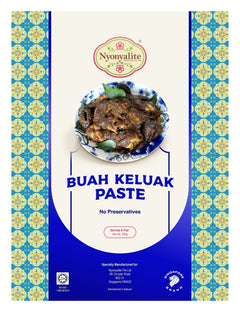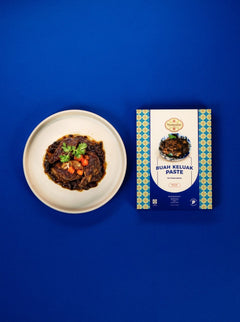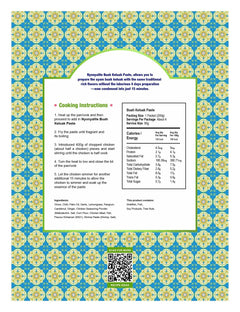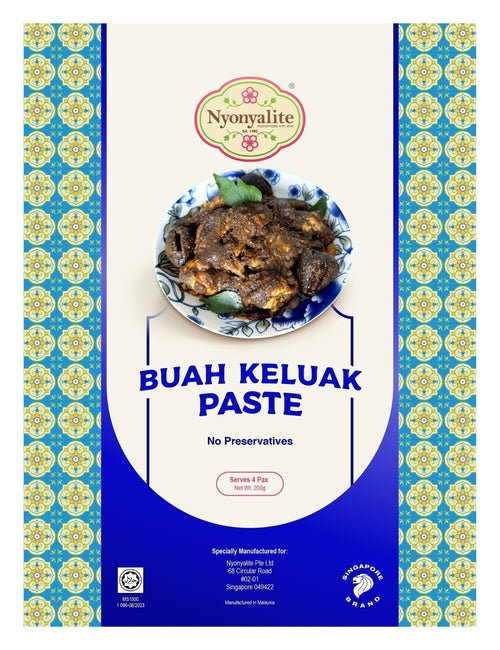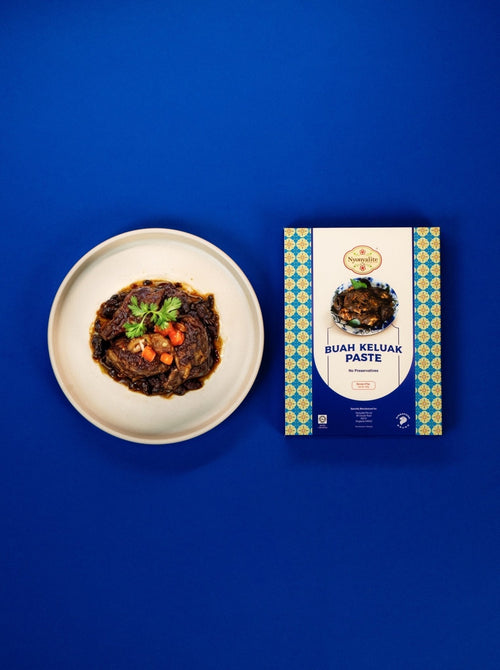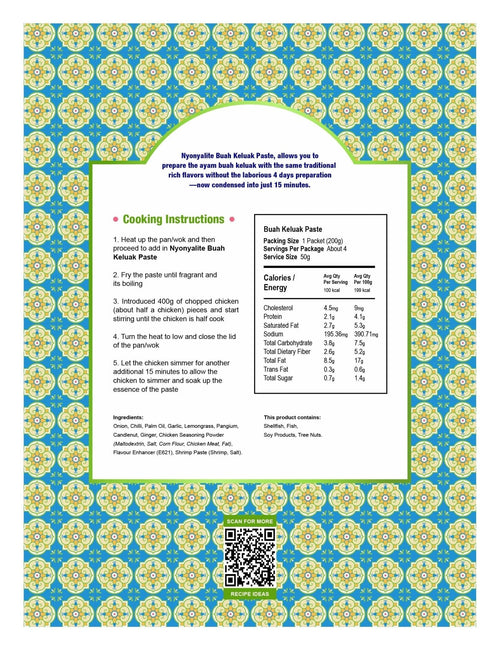满$35即享免费配送。
In the rich tapestry of Peranakan culture, food plays a central role in bringing families together and preserving traditions. Among the many treasured recipes, one dish stands out for its unique flavor and cultural significance: Buah Keluak. This traditional dish is not only a culinary delight but also a symbol of heritage and family values, especially within Peranakan households.
The Cultural Significance of Buah Keluak
In a Peranakan family, the preparation and cooking of buah keluak hold deep cultural significance:
-
Heritage and Tradition: Cooking with buah keluak is a way to honor and preserve Peranakan heritage. The process of preparing the nuts, which includes soaking, fermenting, and sometimes even burying them, is passed down through generations. This tradition keeps the connection to the past alive.
-
Culinary Skill: Preparing buah keluak requires patience, skill, and a keen understanding of flavors. The intricate steps involved in making dishes like Ayam Buah Keluak demonstrate a cook’s dedication and expertise in Peranakan cooking.
-
Family Bonding: The act of cooking buah keluak is often a family affair. It brings relatives together, fostering a sense of unity and shared purpose. This communal activity strengthens family bonds and creates lasting memories.
Nyonya and the Buah Keluak Tradition
In Peranakan culture, there is a charming yet challenging tradition related to buah keluak that highlights the skill and dedication expected of a Nyonya, the term for Peranakan women. Nyonyas are often considered marriage-worthy if they can successfully open and prepare buah keluak. This tradition underscores the importance of culinary prowess and the role of women in preserving family recipes and cultural practices.
-
Symbol of Competence: The ability to prepare buah keluak is seen as a testament to a Nyonya's competence in the kitchen. It reflects her capability to manage the household and contribute to family traditions.
-
Marriage Readiness: Successfully preparing buah keluak is almost a rite of passage for young Nyonyas. It signifies that they are ready for marriage and capable of upholding the culinary traditions that are so vital to Peranakan culture.
-
Respect and Admiration: n the food-centric Peranakan culture, mastering the art of cooking buah keluak garners deep respect and admiration from family and community. This culinary achievement is a prestigious mark of honor that a Nyonya proudly carries.
Why Cooking Buah Keluak Matters
-
Preserving Tradition: In a rapidly changing world, maintaining cultural traditions becomes even more crucial. Cooking buah keluak is a way to preserve Peranakan heritage and pass it on to future generations. Buah keluak is especially important during major festive seasons like Chinese New Year, where it is a centerpiece dish that brings families together. Preparing and enjoying buah keluak during these celebrations reinforces cultural identity and ensures that these cherished traditions are upheld and remembered.
-
Cultural Identity: The preparation of buah keluak is deeply tied to Peranakan identity. It is a reminder of the unique blend of Chinese and Malay influences that define Peranakan culture.
-
Culinary Excellence: Cooking buah keluak is a celebration of culinary excellence. It showcases the rich, diverse flavors of Peranakan cuisine and highlights the meticulous craftsmanship involved in traditional cooking.
Conclusion
The importance of cooking buah keluak in a Peranakan family goes beyond the kitchen. It is a cherished tradition that symbolizes heritage, skill, and family unity. For a Nyonya, mastering the preparation of this unique ingredient is a rite of passage that marks her readiness to uphold and continue the cultural legacy of her family. So, the next time you enjoy a dish made with buah keluak, remember the love, effort, and tradition that went into creating it.


